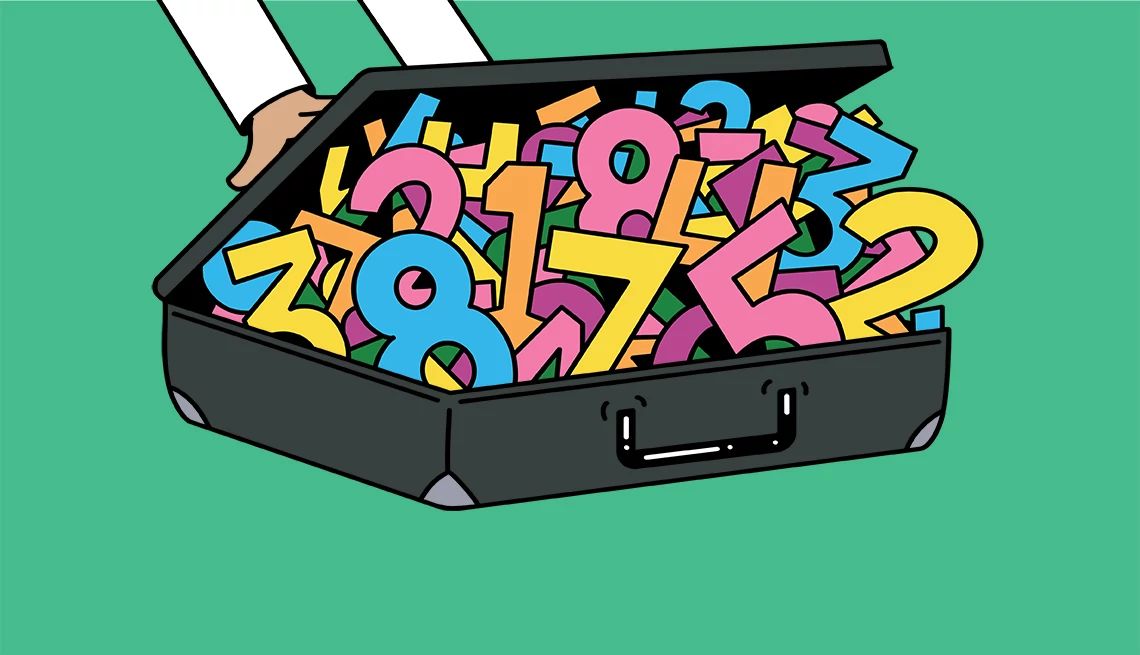
- Select a language for the TTS:
- UK English Female
- UK English Male
- US English Female
- US English Male
- Australian Female
- Australian Male
- Language selected: (auto detect) - EN
Play all audios:
Over the past few weeks, the conflict between Israel and Hamas has intensified and the response by leading politicians and by the British media, has changed dramatically, with growing talk
of peace negotiations and mounting anti-Israel bias. What has been striking about the recent mainstream TV and radio news coverage of Israel is how many important issues have been
misrepresented or even ignored. In particular, there has emerged a growing consensus between senior figures in the British and American governments, spokesmen and women for most of the NGOs
and UN organisations, that the only way forward is peace between Israel and Hamas, without acknowledging that one of Israel’s central war objectives since 7 October has always been the
complete destruction of Hamas. What has changed is that the conflict in Gaza is playing an increasingly important and volatile part in domestic politics in both Britain and America, as
elections approach in both countries. The curious affair of Diane Abbott, the plea by Labour’s deputy leader Angela Rayner to Muslim men in her constituency, President Biden’s desperate bid
for young, Black and Muslim voters, and the invitation by Speaker Mike Johnson to Prime Minister Netanyahu to address the US Congress, have shown that politicians on both sides of the
Atlantic see the situation in Gaza as inextricably bound up with their electoral prospects. All of this has been complicated by inaccurate media coverage in the UK. This has taken two forms.
First, misrepresenting key moments in the Gaza conflict, and, second, misrepresenting international responses to the conflict and other related issues in the Middle East. For example, it
was widely reported that Spain, Ireland and Norway have agreed to recognise a Palestinian state. (Ms Rayner has promised that a Labour Government in the UK would also recognise such a state,
although Sir Keir Starmer has yet to confirm this policy shift.) What was often missed out, however, was that these governments have not stipulated what kind of Palestinian state they are
prepared to recognise. So, for example, would they recognise a Palestinian state ruled by Hamas, like Gaza? Would they insist that a Palestinian state would have to co-exist peacefully with
Israel before it could be recognised? Social media has been full of insights into Ireland’s antisemitic history and its role in the Second World War; TV and radio news less so. But perhaps
the most interesting point is that reporters and presenters alike have not asked why Spain and Ireland, in particular, have failed to use their own experience of terrorism and domestic
conflict to advise Israel and Palestinians how to deal with the current crisis. Spain has not only had years of dealing with Basque terrorism, but in recent years relations between Catalonia
and the rest of Spain have worsened dramatically. How would Spain co-exist with an independent Catalonia next door? Similarly, the problems of an Irish border still bedevil relations
between the Irish Republic and Northern Ireland. Years of conflict and terror in the Province, with many attempts to make peace between Catholics and Protestants, should have given the Irish
government enormous experience and insight into the problems of coexistence facing Israel and the Palestinians. But where is the wise advice and guidance coming from Irish politicians and
public intellectuals? The same is true of South Africa. It has been widely reported that South Africa has accused Israel of war crimes and genocide. What has been less discussed is why South
Africa should be so interested in events in Gaza and whether South Africa could be playing a very different role. Under Nelson Mandela and Desmond Tutu, post-apartheid South Africa set up a
famous Truth and Reconciliation Commission in 1995. It set out to help South Africans come to terms with their past after years of racism and division. The Commission was an extraordinary
moment in South African history, but also a model for countries around the world. Again, this experience might have given the present South African government insight into how reconciliation
could be achieved between Israelis and Palestinians. No advice has been forthcoming. Instead, South Africa has falsely accused Israel of genocide, even though it is clear that given the
opportunity Hamas, backed by Iran, would commit genocide against Israel. What happened to South Africa and what has happened to the generation of Mandela and Tutu and their humanitarian
ideals? Mandela and Tutu wouldn’t have led the genocidal chant “from the river to the sea”, as South Africa’s President Ramaphosa did before the South African election (in which the ANC lost
its majority for the first time since the end of apartheid). British news programmes have failed to ask these broader questions about Ireland, Spain and South Africa, treating them as
disinterested parties, with only altruistic motives, without asking whether any of this is true, or what other — potentially more constructive — role these countries could have played. In
America, the House Committee on Education and the Workforce continues to scrutinise the feeble response of leading American college presidents to the wave of A from UCLA to Northwestern
University. What has been astonishing is the total inability of all these university presidents to defend their actions, or rather their inaction, in the face of unacceptable behaviour by
their students and many of their faculty. Again and again, they have been unable to provide a robust defence of the way they handled the worst crisis in the US university system since the
late 1960s. As a result they have been publicly humiliated by a number of Republican politicians. Many questions go unasked. For example, where have Democrat Congressmen and -women been? Why
have they allowed Republicans like Senator Ted Cruz and Congresswoman Elise Stefanik to take the initiative in these sessions? What has Biden had to say about the crisis in American
universities? This has been symptomatic of the sense of drift that has affected the Biden Administration on national and international issues. More important, this is reflected in the lack
of direction shown by Biden and Secretary of State Antony Blinken. How is the Two-State Solution looking? It sounds humane and reasonable. Two peoples, so two states. But, first, has anyone
put forward any guarantees for the safety of Israeli civilians? Second, what kind of Palestinian state is being suggested? A state ruled by Hamas or Hezbollah and in either case supported by
Iran? Third, as Jake Wallis Simons, the author of _Israelophobia_, has pointed out, “Given the absence of a single meaningful democracy in the Arab world, the chances of a democratic State
of Palestine are not good.” So why is the prevailing consensus, in the media, at the UN and among leading politicians and diplomats, that the Two State Solution is the way forward and even
that Hamas can be a trusted negotiating partner? The UN, in particular, has been discredited by its response to the deaths of the Iranian president and foreign minister. On 25 May UN
Secretary General Antonio Guterres signed the book of condolence for Iranian President Raisi. His British Nigerian deputy, Amina Mohammed, prayed for Allah to grant President Ebrahim Raisi
and Foreign Minister Amir Abdollahian entrance into the Gardens of Paradise and expressed her condolences. Here, _The Jewish Chronicle _was scathing about the BBC’s coverage of Raisi’s
death: “The BBC posted a live blog which described the death of Iran’s notorious former president – widely held responsible for the killing of thousands of political opponents – as ‘tragic’.
Another BBC piece about the death of Ebrahim Raisi, headlined ‘Raisi’s mixed legacy in Iran’, was met with ridicule. In the live blog, the BBC’s chief international correspondent, Lyse
Doucet, called the helicopter crash which killed Raisi last Sunday a ‘tragic accident’.” These were just a few examples of the BBC’s disappointing coverage of the region. Worst of all was
its coverage of Israel’s missile attack on Rafah. On the_ Today_ programme on 27 May an NGO official was interviewed about the terrible conditions in Rafah after Israel’s missile attacks.
No IDF or Israeli official was interviewed to explain that Israeli civilians had been under attack from Hamas missiles from Rafah, that there is footage of IDF destroying rocket launchers in
Rafah on 26 May, or that Israeli intelligence believes that hostages are being held in Rafah. According to the IDF the rocket launcher that fired 8 missiles from Rafah toward central Israel
was situated near two mosques. BBC News did not report this. The IDF also released details from the operation to recover the bodies of seven murdered hostages from the Gaza at the end of
May. This was not shown on BBC News. Instead, the headline on the BBC News website on 27 May was: “Dozens reported killed in Israeli strike on Rafah.” The story continued, “The Hamas-run
health ministry in Gaza says 50 people have been killed and scores injured in an explosion at a refugee camp near Rafah. The Israel Defence Forces (IDF) confirmed carrying out an air strike
targeting a Hamas compound in the area. It says it is reviewing the incident. […]” In the story that followed there were five sentences attributed to the IDF compared to quotes from the
Palestinian Red Crescent, the Hamas-run Health Ministry, a senior official in the Hamas-run civil defence agency, Médecins Sans Frontières, UNWRA, the Hamas-rung government media office,
Qatar, “the military wing of Hamas” and the UN. In contrast, Camera UK reported: “As more information emerged it became clear that ‘an Israeli air strike’ had not ‘hit a camp’ and that the
location was not ‘in a designated humanitarian safe zone’.” Perhaps most curious of all, are the gaps and omissions in TV news coverage of the impact of the Gaza conflict on the British
election campaign. As the General Election gets closer, there are more expressions of concern about the conflict in Gaza from senior Labour figures, including Sir Keir Starmer, Lisa Nandy
and Angela Rayner, who seem increasingly concerned about the Muslim vote. According to Guido Fawkes, Angela Rayner told Muslim voters in Ashton-under-Lyne, “if Labour get into power we will
recognise Palestine.” Mainstream news channels have barely covered this issue of Labour’s bid to woo Muslim voters. Nor have TV news reporters looked very closely at the link between the
Diane Abbott story and Gaza. Much has been said about how Diane Abbott has been “a trailblazer” and a victim of abuse all her career. Less has been said about these comments about Gaza, sent
to the Defend the Right to Protest – Palestine, Islamophobia and Civil Liberties meeting on Tuesday 12 March. She wrote: “30,000 people have been murdered in Gaza. Many, many more are now
threatened with imminent starvation.” As ever, her grasp of statistics let her down. Even the UN has announced that its figure of more than 30,000 civilian dead in Gaza is completely wrong.
It seems the news didn’t make it to Stoke Newington. Her take on the hate marches was just as misleading: “All of us who have gone on all the Gaza demos calling for peace, should wear the
attacks on us as a badge of honour. We are standing in a long line of brave campaigners who stood up for what is right.” This hardline position is one reason why Starmer’s advisers were
trying to ditch Diane Abbott and it’s why Angela Rayner, desperate to woo Muslim voters, has praised Ms Abbott to the skies, leaving Starmer flapping around between the two. What is most
disturbing about all these stories is how complex issues have been reduced to a straightforward media consensus. The British media tell us again and again that the Two-State Solution is a
reasonable way forward, that there is “imminent” famine in Gaza, that more than 30,000 Palestinian civilians have been killed by Israel, until the UN admitted that its figures were seriously
wrong, and that the missile attack on Rafah was a war crime. This sense of a consensus is created by editorial decisions by the news networks, frequently relying on “experts” from the UN,
UNWRA, WHO, longtime critics of Israel such as Philippe Sands or retired diplomats and civil servants from the British Foreign Office, which has been consistently hostile to Israel since the
Second World War. They are regarded as judicious and impartial voices and often sing from the same hymn sheet. It is no surprise that when _Today _wanted an opinion on Israeli “war crimes”,
they turned to Philippe Sands and not to a lawyer from UK Lawyers for Israel. Nor that when Christian Fraser was hosting a panel discussion on the missile attack on Rafah, all three
panellists were hostile to Israel and one, Mihir Bose, trotted out the now discredited figure of more than 30,000 Palestinian civilian deaths. This has been the pattern, again and again,
since October 7. Yet here we still are. If anything, this has become ever more serious, as elections approach in Britain and America. We need better news coverage, asking more complicated
questions, and we are not getting it. Sometimes news channels have apologised. On 26 April, for example, BBC News admitted that its reporting of the death counts in Gaza was flawed: “The
passage gave the unintended [sic] impression that the figure from the Hamas-run Health Ministry consisted only of civilian dead, whereas it also included combatants.” But these apologies
have been far too rare and there has been no sign of an independent inquiry at the BBC or any of the news networks or even an inquiry by Ofcom. By the time that happens, if it ever does,
elections will have been held in the US and in Britain and politicians will have made fateful decisions about the conflict in Gaza. Those decisions will have been influenced by media
coverage, especially TV news. That is why on _TheArticle _we return to this subject again and again. A MESSAGE FROM THEARTICLE _We are the only publication that’s committed to covering every
angle. We have an important contribution to make, one that’s needed now more than ever, and we need your help to continue publishing throughout these hard economic times. So please, make a
donation._

:max_bytes(150000):strip_icc():focal(319x0:321x2)/people_social_image-60e0c8af9eb14624a5b55f2c29dbe25b.png)





